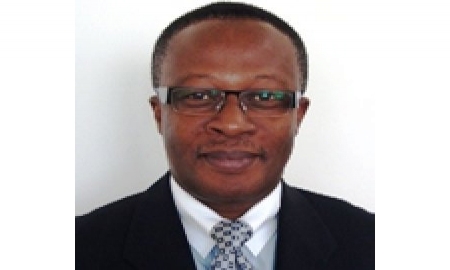
Felix Nyarko-Pong, CEO of uniBank Ghana, discusses the country’s socioeconomic future, the pros and cons of dealing with a major informal sector, and the bank’s ongoing dedication to its CSR initiatives.
Rapid growth is fuelling optimism on many fronts in Ghana. That being said, one must always remain cautious when it comes to potential challenges to future growth and development. What would you say are some of these challenges?
The key challenges will come from the political and business arenas. We must strive to continue with dynamic policies to keep ahead of the transforming global economy, attract investment into Ghana and remain positive in order to sustain growth.
There are around 28 banks in Ghana, some of which merged recently. What is your view of the banking industry and how it is maturing?
There is a positive outlook and we believe that it will continue to drive GDP growth in Ghana. The central bank has created an enabling environment for the sector to grow and prosper.
International banks have been permitted access to the market, and their presence is strengthening the sector in areas of service delivery, products and overall capital injections into the economy. Capitalization levels are good.
Mergers and acquisitions come naturally into play. Banks have their traditional market niches, and players merge to create the desired synergies.
As the economy develops, more and more people will start ‘banking’. How is uniBank planning to increase market share?
We are looking at it from a multi-faceted front. We have established a microfinance institution for the largely unbanked population in Ghana, called uniCredit, which covers a large portion of the informal sector particularly in rural areas. uniCredit is a subsidiary of ours which we provide support to, i.e.: with matters of technical assistance.
It is common for members of the informal sector to shun traditional banks because they demand collaterals and other documentation to open accounts. What we are doing is developing informal sector-friendly financial products. We analyze business plans and document growth over ten year periods to better understand the sector and its viability, and we are currently seeking partners with the same psyche and focus to come on board. As an indigenous bank, we are focused on developing the resources and capacities of Ghanaians.
uniBank is expanding its footprint by entering new domestic markets; our objective is to open ten more branches by June.
Regarding oil and gas, we want to help boost the capacities of SMEs and create linkage industries. SME development is crucial because it will flow into the real economy. Oil is typically financed externally, and players are external as well.
Would you consider uniBank’s dedication to SMEs as a competitive advantage for the bank?
In terms of competitiveness, we are focusing on the SME sector. We do have the capacity to manage high-net clientele though, if truth be told, we Ghanaians are largely concentrated at the lower end of the middle income classification.
What sustainable Corporate Social Responsibility (CSR) initiatives does your bank have, and which are you particularly fond of?
In terms of CSR, health is our major priority. We actively participate and set up health camps throughout the country, and help people who would otherwise be unable to receive medical attention. We have developed eye centres and are working with the College of Health Sciences. We believe that a healthy populace is vital for long-term sustainable growth.
As investments continue to flow into Ghana, what would you say to investors who are still sceptical of this country’s credentials as a viable market?
People in West Africa, especially in Ghana, are extremely friendly in a sincere way. We are welcoming, and we have recognised that we cannot grow alone.
This country is run by upstanding professionals; trained and educated in world-class institutions. They understand risk and know how to manage it. We have a flourishing democracy that has taken root in its strong institutional structures. Our economy is stable, our telecom sector is thriving and our communications sector is first rate; businesses must communicate.
Ghana is very safe; you can walk the streets without feeling foreign, and we take the rule of law in Congress seriously. We have the history and backing to attest to this.
We know that investments are long-term and because of our commitment to these values, we will carry on doing things in a sustainable way. Investors will realise the value. The story of Ghana is real and so is its growth.
What is uniBank’s greatest achievement over the past 10 years and what can the world expect from you in the next decade?
uniBank was the best retail bank in the African Leadership Awards, the best in SME banking in the country, and one of the best in competitive pricing. Three award groups ranked us as the best advisory services; this is something we are doing well and we intend to continue building on this.
We have time for our clientele; we listen to them and grow alongside them. The result of all this are very low non-performing loans (NPL). The world should expect more in that direction, our coverage is going to be strengthened in that regard. Furthermore, our product offering will continue to respond to demands.
An indigenous bank has someone like me because we know that there are good things out there. We have acquired good things from western banks and we want to adapt and enhance them to the local market. We are using it to build our capacity. We will continue to develop uniBank; it is what our shareholders expect and what our people need.
0 COMMENTS